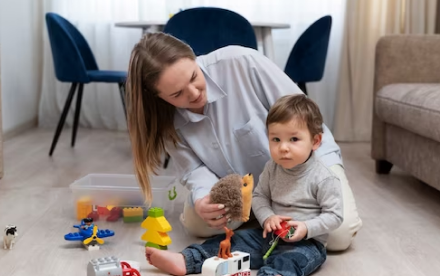With Montessori early education, one principle stands tall as a beacon of empowerment and growth: independence. At the heart of Montessori philosophy lies a profound emphasis on fostering independence and self-reliance in young children. Let's delve into the significance of independence in early childhood and explore practical strategies for parents to support their child's journey towards autonomy and self-confidence.
The Importance of Independence
Independence is more than just a skill—it's a fundamental aspect of human development that lays the groundwork for lifelong success and fulfillment. In the Montessori approach, independence is seen as a key ingredient in nurturing children's natural curiosity, creativity, and resilience. By allowing children to make choices, take risks, and learn from their experiences, independence promotes confidence, problem-solving skills, and self-esteem.
Empowering Confidence and Self-Esteem
When children are empowered to make decisions and take responsibility for their actions, they develop a strong sense of self-confidence and self-worth. By encouraging independence in daily tasks such as dressing themselves, preparing snacks, or tidying up their environment, parents provide opportunities for children to experience success and mastery. These small victories build confidence and resilience, empowering children to face challenges with courage and determination.
Cultivating Problem-Solving Skills
Independence nurtures the development of critical thinking and problem-solving skills as children learn to navigate the world around them. By encouraging children to find solutions to everyday challenges independently, parents foster a sense of resourcefulness and ingenuity. Whether it's figuring out how to zip up a jacket or resolving conflicts with friends, children develop essential problem-solving skills that serve them well throughout their lives.
Practical Strategies for Supporting Independence at Home
Parents can support their child's journey towards independence by incorporating practical strategies into their daily routines:
Provide Choices: Offer children choices whenever possible, allowing them to exercise autonomy and decision-making skills. For example, let them choose their own clothes, snacks, or activities for the day.
Encourage Self-Help Skills: Teach children practical life skills such as dressing themselves, pouring drinks, or using utensils independently. Break tasks down into manageable steps and offer gentle guidance and encouragement as needed.
Create a Prepared Environment: Arrange your home environment to promote independence and accessibility for children. Keep frequently used items within reach on low shelves or in labeled bins, allowing children to access materials independently.
Model Independence: Lead by example and demonstrate independence in your own actions and choices. Show children how to problem-solve, organize tasks, and take responsibility for their belongings.
Examples of Montessori-Inspired Activities
Practical Life Activities: Set up a snack station where children can independently prepare their own snacks, such as cutting fruits or spreading butter on crackers.
Gardening: Involve children in gardening tasks such as planting seeds, watering plants, and harvesting vegetables. Allow them to take ownership of caring for their own plants and observing the natural world.
Art Exploration: Provide art materials such as paints, brushes, and paper for children to express their creativity independently. Encourage them to experiment with different techniques and materials without judgment or pressure.
By embracing the principles of independence in early childhood, parents can empower their children to become confident, capable, and resilient individuals. Through a supportive and nurturing environment that values autonomy and self-reliance, children are free to explore, learn, and grow into their fullest potential.

